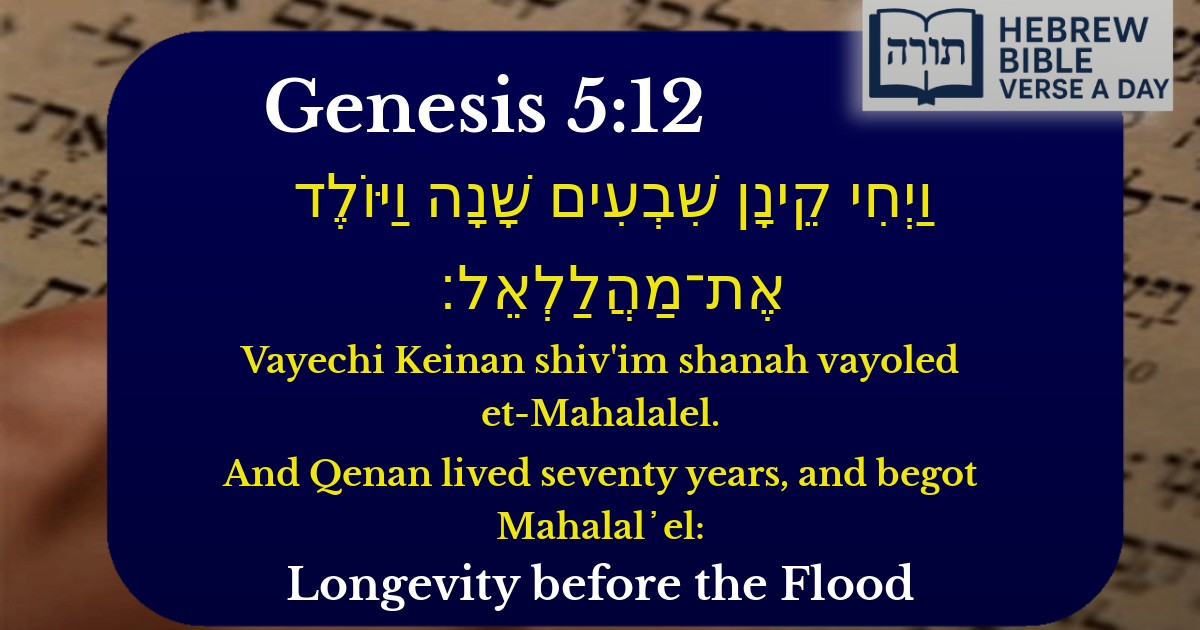Join Our Newsletter To Be Informed When New Videos Are Posted
Join the thousands of fellow Studends who rely on our videos to learn how to read the bible in Hebrew for free!
Hebrew Text
וַיְחִי קֵינָן שִׁבְעִים שָׁנָה וַיּוֹלֶד אֶת־מַהֲלַלְאֵל׃
English Translation
And Qenan lived seventy years, and begot Mahalal᾽el:
Transliteration
Vayechi Keinan shiv'im shanah vayoled et-Mahalalel.
Hebrew Leining Text
וַיְחִ֥י קֵינָ֖ן שִׁבְעִ֣ים שָׁנָ֑ה וַיּ֖וֹלֶד אֶת־מַֽהֲלַלְאֵֽל׃
וַיְחִ֥י קֵינָ֖ן שִׁבְעִ֣ים שָׁנָ֑ה וַיּ֖וֹלֶד אֶת־מַֽהֲלַלְאֵֽל׃
🎵 Listen to leining
Parasha Commentary
📚 Talmud Citations
This verse is not quoted in the Talmud.


Verse Analysis
The verse states: "וַיְחִי קֵינָן שִׁבְעִים שָׁנָה וַיּוֹלֶד אֶת־מַהֲלַלְאֵל" ("And Qenan lived seventy years, and begot Mahalal᾽el"). This is part of the genealogical record in Sefer Bereishit (Genesis 5:12), tracing the lineage from Adam to Noach.
Rashi's Commentary
Rashi (Bereishit 5:12) notes that the Torah emphasizes the age at which Qenan fathered Mahalalel to highlight the pattern of longevity among the early generations before the Flood. He explains that the term "וַיְחִי" ("and he lived") is used to introduce each patriarch's lifespan, reinforcing the idea that their years were filled with purpose and divine service.
Meaning of the Names
Traditional sources delve into the significance of the names mentioned:
Chronological Context
Rambam (Mishneh Torah, Hilchot Avodat Kochavim 1:1) references these genealogies to establish the timeline from Creation. The Seder Olam Rabbah (Ch. 1) calculates the years meticulously, showing how Qenan's lifespan fits into the broader chronology leading to Avraham Avinu.
Spiritual Lessons
The Kli Yakar (Bereishit 5:12) observes that Qenan's relatively late fatherhood (at 70, compared to earlier generations) hints at a delay in spiritual readiness. This teaches that the timing of progeny—and by extension, spiritual legacy—is divinely ordained and tied to one's moral preparedness.